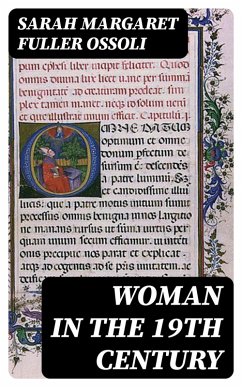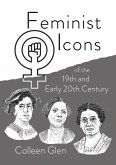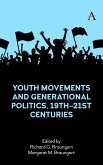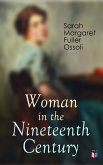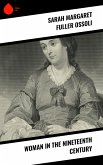In her groundbreaking work, "Woman in the Nineteenth Century," Sarah Margaret Fuller Ossoli offers a profound exploration of women's roles and rights in a patriarchal society. The text, noted for its blend of transcendentalist philosophy and early feminism, dissects the societal constraints imposed upon women, advocating for their intellectual and social liberation. Fuller's eloquent prose employs both personal narrative and rigorous argumentation, positioning her work as a pivotal commentary within the broader context of 19th-century reform movements, including abolitionism and temperance, thus revealing the intersections of gender and social justice. Sarah Margaret Fuller Ossoli was a prominent figure in the American transcendentalist movement and a passionate advocate for women's rights. Her radical ideas and experiences in intellectual discussions with contemporaneous thinkers like Ralph Waldo Emerson and Henry David Thoreau shaped her convictions about gender equality. Through her extensive travels and connections with literary circles, she encountered diverse perspectives on women's roles, which fueled her determination to challenge the status quo in society. I highly recommend "Woman in the Nineteenth Century" to readers interested in early feminist thought and the socio-political landscape of 19th-century America. Fuller's incisive arguments remain remarkably relevant today, inviting readers to reflect on the ongoing struggles for gender equality and inspiring new generations to continue the conversation about women's rights.
Dieser Download kann aus rechtlichen Gründen nur mit Rechnungsadresse in A, B, BG, CY, CZ, D, DK, EW, E, FIN, F, GR, H, IRL, I, LT, L, LR, M, NL, PL, P, R, S, SLO, SK ausgeliefert werden.

